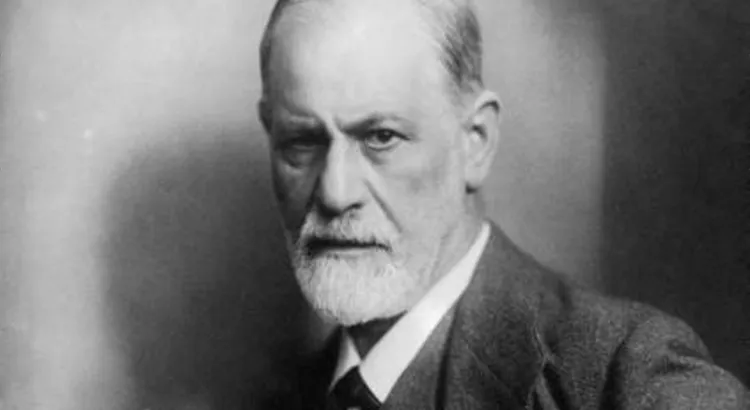Question:
I would like, as far as possible, to make a synthesis of Freud’s doctrine. Which are the salvageable parts of his postures and which of them are in harmony with the teaching and the psychology proposed by the Church. As a comment, I want to say that I have read about different topics in your page, with much spiritual benefit for me; may God bless you.
Answer:
I would like to reply to your questions with this article by Fr. Antonio Orozco
Sigmund Freud: A Myth Creator of Myths
The magazine Europe Today (December 28, 1995) reports a protest of 50 psychologists, historians and feminists against the celebration of an exhibition dedicated to Sigmund Freud at the Library of Congress in Washington. The criticism went unheeded. The exhibition had not been organized around any anniversary, but the Library of Congress has the largest collection of letters and objects of the founder of psychoanalysis and it seemed logical to organize an exhibition on this man who has marked ‘a new direction in the thought of the twentieth century’.
More than 50 years after his death, the personality of Freud (1856-1939) remains controversial. The Nobel laureate in medicine, Sir Peter Medawar, has described Freudianism as ‘one of the saddest and strangest passages in the history of twentieth-century thought’. Freud himself suffered, during his lifetime, harsh criticism accusing him of being unscientific, subjective and a charlatan. His authoritarian personality, the temptation to turn his disciples into loyal members of a quasi-religion and his speculative works on the religious phenomenon and on civilization, made him be taken for a madman. However, Freud transformed the patterns of thought of his time. He was a strange mixture of rationalist and prophet, destroying some myths and creating others.
Scientists and experimental psychologists – says Europe Today – have never had much time to study Freud. He has been more suggestive in fields such as the literature of the mind, or for those who wanted to know the structure of the human psyche and all that is hidden from everyday thought’. Whatever the case may be, it is difficult not to see in some more or less intellectual circles that new cultural currents reach them when, among the more specialized professionals, they are no longer valid because they have been surpassed. It even happens – with the necessary exceptions, of course – in supposedly high level educational centers and in high schools.
What does Sigmud Freud Contribute?
Sigmund Freud’s psychoanalytic theory presupposes an anthropology of which we could speak here with full knowledge of the facts. On the contrary, we will limit ourselves to transmitting assessments of specialists of recognized solvency in anthropology and psychopathology. The matter is relevant, because it is not infrequent that Freudianism is found more or less explicitly in classes, television and radio talk shows, in the windows of ordinary bookstores, etc… Ideas are thrown into the air as if they were indisputable theses and those inexperienced in scientific rigor become impregnated with them, acquire a distorted concept of man and insensibly lose (if they had one) their vital direction.
For example, are not some films by the brilliant Catholic film director Alfred Hitkoch (which many of us have seen and, if we had the time, would watch again with relish) fascinating? There underlies Freud and his theory of dreams plotting the storyline or the key to an admirable suspense; the analysis of dreams leads to the discovery of the origin of tremendous psychic imbalances, even to the criminal of the film.
On the other hand, not a few number of Catholics – and I am no longer referring to Hitkoch–, with an inexplicable inferiority complex, before everything that seems modern, are dazzled by the scientific apparatus with which Freudianism has been presented since its origins (the same has happened with the already obsolete Marxism), in such a way that before it they feel the foundations of their faith shaken. It is not that it should simply be affirmed that Freudianism is false because it is opposed to faith, nor that this is not true. What is to be emphasized is that at this point in a new millennium, many eminent psychologists have demonstrated, or at least shown, that Freudian anthropology is untenable. In Freudianism there is much that is debatable and much that is obviously false, although, as in everything that makes waves, there is some truth. Nevertheless, it is normal that the truth involved in an immense error can be found in other fields as well, without the need to swallow misunderstandings that can be tragic.
There are things, like atomic energy, which are ambivalent: they can be used for good or for evil. If they are used badly, it is not the fault of the theory that made it possible. There are also theories that are globally an immense error, even if they contain some truth, which lends them credibility and fascination. When these are applied, the balance is always lethal. Although, if it satisfies some vehement human passion, it is difficult to see it or recognize it. Certain materialisms contain a truth: matter is a good thing; pleasure is desirable, but their error is incalculable; this is due to the fact that it distorts the knowledge of reality – the truth about man, family, society – which has a transcendental dimension and meaning to all that is material. On the other hand, whatever truth there may be in materialism can also be found, and with far greater richness, in Christianity, which professes nothing less than the Incarnation of the Son of God. The good that materialism has done is meager; the evil is immense.
What good has Freud’s materialistic anthropology done for medicine, for psychology, for science, in general, for the sick? It is said that Freud introduced a more humane relationship with the sick. Yet, every day more and more people question Freud’s contribution to medicine. The recent discovery of documents relating to Freud and his circle, plus the parsimonious authorization to publish others by his heirs, have provided increasing insights into the man and his works. Some of it is disturbing. The fact is that the published histories of Freud’s clinical cases record unconvincing or regrettable results.
A Propaganda Genius
Hans J. Eysenk, Professor of Psychology at the University of London, has written a documented essay entitled Decline and Fall of the Freudian Empire. After examining, for decades, cases dealt with by Freud, he concludes that “he was, indeed, a genius, but not of science, but of propaganda; not of rigorous proof, but of the art of persuasion; not of the scheme of experiments, but of literary art”. Eysenck says that although this may seem a harsh judgment, the future will back it up. He adds that from psychoanalysis “we are left with only an imaginary interpretation of pseudo-events, therapeutic failures, illogical and inconsistent theories, disguised plagiarism of predecessors, misperceptions of unproven value, and a dictatorial and intolerant group of followers who insist not on truth, but on propaganda”. Eysenck further denounces that Freudian dogmas have succeeded in undermining values fundamental to civilization, subjectivizing moral norms and disturbing the healthy exercise of sexuality. In light of such harsh and difficult to refute accusations, some of his followers have defended themselves: “Freud may not have been very skillful in practicing what he preached, but that defect in no way invalidates his general theories”. However, the overwhelming number of practical failures must logically call the theory into question. There are already many prestigious scientists who would subscribe to the epitaph that the humorist Maximus placed – in one of his black humor cartoons – on Freud’s grave: “Sigmund Freud. He expanded unlimitedly the ignorance of man”. There is a flood of new books attacking Freud and his invention of psychoanalysis for “an extensive series of errors, duplicities, rigged tests and scientific blunders”.
Dreams and Repression
His well-known ‘dream theory’ assumes that dreams are fantasies full of desires, but it cannot be scientifically proven. If true, what strange desires would correspond to those terrible dreams about suffering and disaster that we sometimes have? What is certain is that some dreams may reveal hidden desires, others hide them, and some others refute Freud’s theory.
For Freud all repression would be the cause of neurosis. Adolf Grunbaum – eminent philosopher of science and professor at the University of Pittsburgh – has published a book (Validation in the Clinical Theory of Psychoanalysis), in which he dispassionately examines a number of key psychoanalytic premises: the theory of repression (what Freud called ‘the cornerstone on which the whole structure of psychoanalysis rests’). Grunbaum does not claim that the idea of repressed memories, for example, is false. He simply argues that neither Freud nor any of his successors has ever demonstrated the existence of a cause-effect link between a repressed memory and a subsequent neurosis, or between a recovered memory and a consequent cure. Grunbaum, unsurprisingly, is not satisfied with more or less brilliant rhetoric, he demands proof, and he does not find it in the Freudian theories of dreams and repression: ‘We need to demonstrate more’, he claimed.
It is difficult to know why Freud has so profoundly dominated the imagination of the twentieth century. There is a difficult balance between his ‘scientific’ pretensions and his bold speculations. Cambridge professor John Casey says: ‘I think I have got rid of Freud’s influence, and I hate Freudian sociology, which is always looking for sexual motives and ‘Freudian lapses’ in people’s motives for acting. Somehow, still it does not seem possible for me to get rid of Freud’s figure. I believe that Freud’s thought has deformed Western thought, and that his pseudo-science says nothing new about the world. As Wittgenstein said, ‘in Freud there is no wisdom, only intelligence’.
Sexuality and Libido
Aquilino Polaino-Lorente (Complutense University) has written several books on the subject and states that although the supporters of psychoanalysis consider Freud as the liberator of man’s sexual repression, the fact is that not only did he not do such a thing, but something quite different: ‘he tried to understand neurosis from a merely sexual point of view and what he did, in reality, was to sexualize neurosis. As a consequence, he neurotized human sexuality. It is curious,’ adds the professor, ‘that the more contact a client has with psychoanalytic interpretations – a contact that is always compromised, because it requires belief in them – the more frequently sexual neuroses appear. Can this be called sexual liberation?’
There is some truth in Freud’s theories, says Professor Polaino. However, he adds that, on the whole, they are interpretations with hardly any scientific value. Freud has not liberated mankind, but has humiliated it. He has pretended that man no longer feels that he is the master of his actions. According to Freud, our acts would always respond to an unconscious motivation, in such a way that there would be no room left for freedom: the man of Freudian interpretation is nothing more than an instinctive automaton at the service of the sexual drive, more or less dormant.
Freud, in fact, is one of many ‘liberators’ who deny freedom, because in his materialistic anthropology personal freedom, which confers control over one’s own acts, cannot but be shipwrecked in a sea of instincts, among which the sexual instinct stands out enormously. It pretends to ‘liberate’ from supposed repressions, from more or less real neuroses and does not realize – since it cannot realize from its materialistic anthropology – what man is, what human sexuality is, not even what neurosis is.
For Freud and still quite a few psychiatrists and psychologists today (less and less), religion would be nothing more than the effect of repressed conflicts. The activities of the ego, the thought, the judgment, would be born of the libido. Freud always rejected the label of pansexualism. Nevertheless, in his work, the libido is in fact at the genesis of all mental disorders. Moreover, it is also at the origin of all History, Culture, Art and Religion, always products – the latter – of the sublimation of the libido. The very development of the personality, from birth to maturity, is explained according to hypothetical stages of evolution of the sexual instinct, within which the Oedipus complex would be normal (!). Almost all psychological relations of man would be born in that sexual instinctive zone. Thus, if it is not pansexualism in Freud, it is at least an incredible hypertrophy of sexuality. In this context, religious life and Christian morality appear as an alienation or source of mental imbalance.
Therefore, it is good to remember what Giambattista Torello, a profound connoisseur both of psychiatric science and of the religious phenomenon, wrote many years ago: “Religious life does not engender neurotics, but it is the neurotic who deforms religious life, and in certain cases the patient gives exclusive or certain religious contents to his neurosis…. It would be easy to think, judging by the religious content of such neuroses, that they are of religious origin. What happens is quite different: the neurotic personality has taken possession of religiosity to manifest itself, as it could have done, for example, in hygiene, sexuality or jealousy’.
Specialists in this subject assure that Freudian psychoanalysis will certainly be able to displace the object of the scruples of a neurotic, but never cure his neurosis, which will be centered on other objects. The object of the neurosis will have been changed, but the illness will not have been cured. Thus, for example, from the scruple in sexual matters, one will pass to the false liberation of unconditional surrender (this will be called liberation) to the abuse of genitality. The competent psychiatrist may not be able to cure certain neuroses, but he will not aggravate them with deceit. If a certain neurosis is not curable today, the life of faith will at least make it more bearable; and in no way should we exclude that prayer obtains from God not only the relief, but even the healing of the sick person.
Living the Christian religion does not alter the psychic equilibrium of normal people. ‘Religious ideals, lived in intense spiritual life, can and do prevent some mental disorders, and sometimes alleviate and even cure states in which therapeutic means have proved ineffective’ (Moore). C. Jung goes so far as to assert that the psychoanalyst would have few sick people if people lived according to the ten Commandments. Finally, Victor Frankl asserts that religion ‘is also psycho-hygienic; indeed, it has efficacy in a psychotherapeutic sense, inasmuch as it shelters and offers asylum to man and gives him an unparalleled security’.
Antonio Orozco
Original Post: Here
Teologo Responde: Here
Another Post: What is sinful in cohabitation: living together or having sexual relations?














